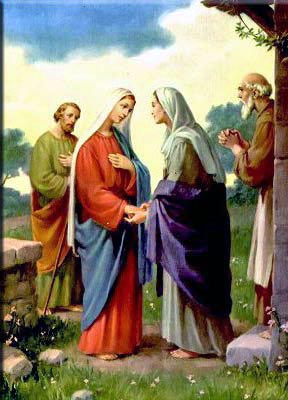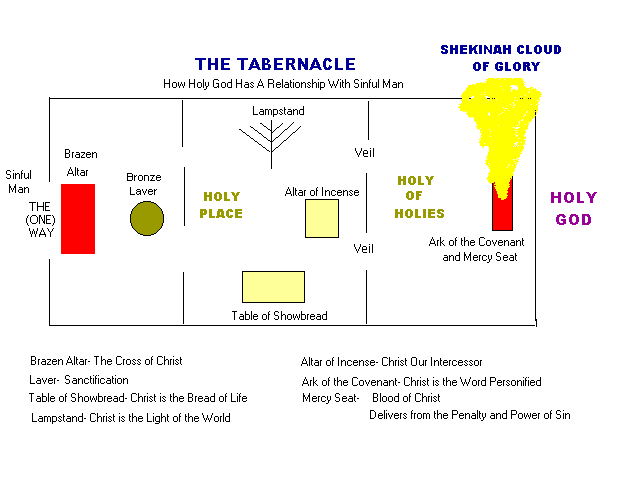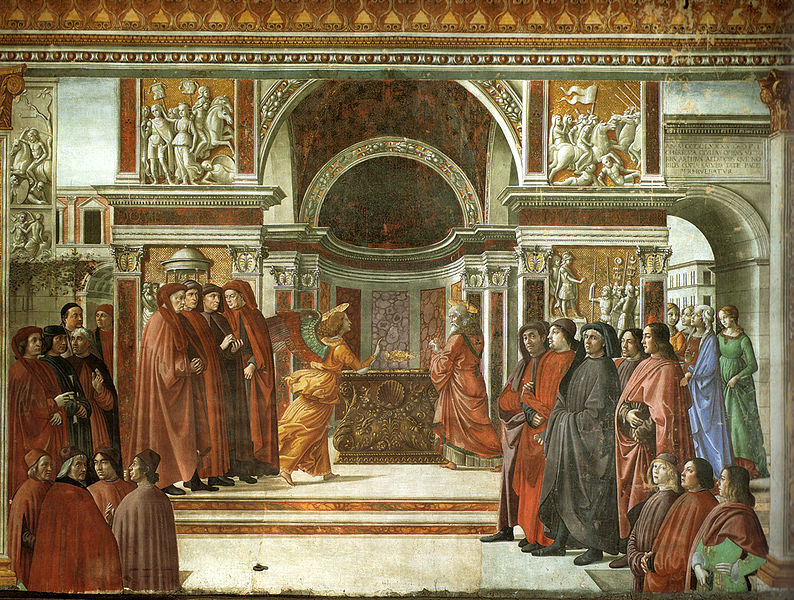- Luke Part 1 (1:14:13) Qindepthonline Lutheran Bible Study English
- Luke Part 1 (1:14:13) Qindepthonline Lutheran Bible Study -
- Luke Part 1 (1:14:13) Qindepthonline Lutheran Bible Study 1
- Luke Part 1 (1:14:13) Qindepthonline Lutheran Bible Study Youtube

My family sits down together at dinnertime most evenings.
A new version of this page can be found here. The Departing Jesus. The departing Jesus' relationship to the Father. Jesus assures a future reunion in His Father's house'Let not your heart be troubled; you believe in God, believe also in Me.
It’s a time to catch up with the activities of the day, as well as just a respite from the busyness of life. No texting is allowed at the table. It’s important for us to touch base with one another in this way to ensure that all is well with, in our case, our four sons.
- This is an adult Bible study from 1 Timothy at Trinity Lutheran Church, Murdock, NE by Pastor Brent W. Get your Bible out and following along. This is an adult Bible study from 1 Timothy at Trinity Lutheran Church, Murdock, NE by Pastor Brent W. Luke and Acts: Some Connections Part One. This Bible class is from.
- THE CONSPIRACY OF THE JEWISH AUTHORITIES TO PUT JESUS TO DEATH-THE SUPPER AND THE-ANOINTING AT BETHANY-JUDAS AGREES WITH THE CHIEF PRIESTS TO BETRAY HIS LORD. ( = Matthew 26:1-16 Luke 22:1-6 John 12:1-11). The events of this section appeared to have occurred on the fourth day (Wednesday) of the Redeemer's Last Week.
When our oldest son is home from college, the noise level is loud and the six of us are usually talking at the same time. There’s a lot of laughter and if one of us has a good story or joke to share, then all of us tune in. On the more serious side, it’s a time to make decisions as a family and, on occasion, to put family pressure on one of our sons who may be about to make a serious ethical decision. Character building and value shaping are central, even if not plotted, to the time we share together around the evening meal.
Commentary
Jesus, too, is interested in mealtime. Jesus loved the gatherings around meals; at least, that’s what we are led to believe in the Gospel of Luke. This was one of the primary distinctions between him and his ascetic mentor John the Baptist. He doesn’t even deny the charge that he enjoyed more than his share of wine at many meals (cf. 7:33). In our story, Jesus is at a banquet and tells a “parable” about the meal setting, which is followed up by another story about another banquet. He can’t get enough of what happens at meals.
On another note, it should not be surprising that Jesus shares a meal with some of the Pharisees. Once we remove the negative impressions we have of this formidable group and recognize their influence on many people during the first century, we should not be surprised by this encounter. Just a few verses earlier some Pharisees actually assisted Jesus by informing him of Herod’s plans to locate Jesus (cf. 13:31). This suggests a more neutral relationship between “the Pharisees” and Jesus in Luke’s Gospel.
Luke Part 1 (1:14:13) Qindepthonline Lutheran Bible Study English
By chapter 14, Luke has established a pattern of Jesus’ freer activity on the Sabbath. These Pharisees, not surprisingly, are “watching him closely” (14:1); perhaps it is due to what they have heard about Jesus’ Sabbath practices earlier (e.g., 6:6-11 and 13:10-17). Whenever this verb is used — “watching” from paratereo (“keep alongside”) — the religious leaders do not do this simply out of curiosity.

They are trying to trap Jesus, either in some activity like healing on the Sabbath (cf. 6:7) or something inappropriate he might say (cf. 20:20). But, here, after Jesus heals someone on the Sabbath, there is no little to no reaction to Jesus’ activity. Luke wishes to draw our attention elsewhere in this short story. He would like us to think about “meals” in first century life.
In the Gospel of Luke, meals, in particular, provide central settings for Jesus’ mission. And, the language of food, in general, serves as a basis for Jesus’ teaching (cf. 11:5-8; 15:14-17, 23; 12:16-21, 45; 17:7-10). Eating is a sign of life (cf. 8:55; 17:27-28; 24:43) and celebration (cf. 15:23). But it also symbolizes the harsh realities for the enslaved (cf. 17:7-10). Food has religious connotations as well (cf. 6:1-4; 7:33; 14:15; 22:14-20); Jesus “blessed” it (cf. 9:16; 22:19; 24:30) and prayed for it daily (cf. 11:3).
Even though Jesus shared several meals with Pharisees (cf. 7:36), they often complained about his choice of (other) table-fellowship companions (cf. 5:30) and about how his associates secured food on the Sabbath (cf. 6:1-4). Unlike his possible mentor (John the Baptist), Jesus loved food (cf. 7:33) and his disciples followed suit (cf. 5:33). Just as he expects to care for the physical needs of others (cf. 9:13), he expects that others will provide for his disciples when they minister among them (cf. 9:3; 10:7-8).
Indeed, he assumes that friends will share it (cf. 11:5-8; 24:30), which is a natural outgrowth of first-century Jewish culture. Theologically, he believes that God will provide for the basics of life, so he teaches and acts accordingly (cf. 12:29-31).
In Luke 14, Jesus is less interested in the actual food than in the composition of the banquet. So, he tells a story about meals and honor. It’s an unusual “parable” in light of its clear references. His story emphasizes two components of the banquet setting: (1) the selection of “seats” (honor?); and, (2) the invitation list. In an honor and shame culture, avoiding shame is of the utmost importance. This is not simply embarrassment. Public shame may have tangible implications for the shamed. A family’s bartering practices or marriage proposals can be negatively affected by a public shaming, if the shame is significant enough.
On the opposite end, public honor — determined, in this story, by the host — may come to those who express public humility. Jesus expresses expectations for hosts (cf. 14:12-14). His words are a challenge to the honor system embedded in first-century culture. To secure one’s place in this system, it was appropriate to invite friends, family, and rich neighbors. Reciprocal requests would ensue, as the public acknowledgement of an honorable person may bring its own rewards.
But Jesus calls into question this type of caste system, imagining instead hosts who choose to associate with people who are “poor, crippled, lame, and blind” (14:13) as their new network. The problem for hosts, however, as Jesus explicitly recognizes, is that no honor is forthcoming in return. Rather, it’s an investment in the future.
So what?
“One does not live by bread alone,” as Jesus argues in the temptation scene (4:4). Nor is Jesus only concerned about what happens at meals. His teaching is about the way we treat others, especially those among us who unable to “pay us back.” In a modern democratic society in which public political rhetoric emphasizes that all are (created) equal, it is easy to miss the emphasis of Jesus’ teaching in his own status-oriented, honor-shame and hierarchical space.
Luke Part 1 (1:14:13) Qindepthonline Lutheran Bible Study -
Yet, we have our ways of distinguishing one from another, in order to structure our contemporary world. Oftentimes, these distinctions among us hinder us from true fellowship with one another. Jesus’ story is a reminder to us about the company we keep. As Dr. Martin Luther King, Jr. understood, “Our goal is to create a beloved community and this will require a qualitative change in our souls as well as a quantitative change in our lives.”
Book of Acts Explained
The Acts of the Apostles is a unique and therefore crucial book of the New Testament. It alone presents an extensive picture of early church life and history. The title as we know it comes from the second century and only partially discloses the theme of the document. The book focuses primarily on the acts of two apostles, Peter and Paul. And it proposes to show the continuation “of all that Jesus began both to do and teach” (1:1).
It contains the acts Jesus carried out after His ascension, through the Holy Spirit, in establishing the church. The author evidently follows the Great Commission in developing this theme, showing the beginning in Jerusalem, the outreach to Judea and Samaria, and the expansion to the distant city of Rome (1:8).
Verse 1 demonstrates clearly that the unnamed author of Acts is the same person as the unnamed author of the third gospel (Luke 1:3 with Acts 1:1-2). The Gospel of Luke and the Book of Acts form a single, two-volume work. The author quite certainly was Luke for the following reason: First, the author was a companion of Paul. (16:10-17; 20:5 – 21:18; 27:1 – 28:16). The author distinguishes himself from Paul’s other companions in Acts by naming them. Of Paul’s unnamed companions only Titus and Luke could have been with Paul during each of the three “we” passages.
Luke Part 1 (1:14:13) Qindepthonline Lutheran Bible Study 1
As the Book of Acts closes, the author places himself beside Paul at the Roman imprisonment. Paul in his epistle states that Luke, not Titus, was with him at that time (Philemon 24). Second, the author gives some evidence of being a physician by the attention he gives to medical detail (Luke 8:43), and the technical Greek terms he uses (3:7). Luke was called “the beloved physician” (Col. 4:14). Third, the early church writers attribute the third gospel and the Book of Acts to Luke. Since Luke is an otherwise little-known figure, there is no logical reason to attribute the authorship to him, unless he is in fact the author.

Luke nowhere mentions the date for the writing of this document, yet the manner in which he closed the book suggests a date. Luke stops abruptly after mentioning the duration of Paul’sRoman imprisonment. He mentions neither the progress of the church nor the plans of Paul. Therefore, it seems as if Luke stops where the history ends; he describes the events up to the current time. If so, the date is about (A.D. 62).
Luke Part 1 (1:14:13) Qindepthonline Lutheran Bible Study Youtube

Luke wrote to convince Theophilus of the “certainty of those things, wherein thou hast been instructed” (Luke 1:4). Theophilus was probably a Gentile official who had been won to Christ, and Luke desires that he may understand more clearly the historical events that underlie his Christian faith and practice.
Second, Luke’s purpose is not to write the history of the early church. Nothing is recorded for large segments of time (e.g., A.D. 35-44). Luke is not a chronicler seeking to record every event. But he does write a history that shows the beginning and spread of the church. He focuses on the important initial events and those that give meaning to the epistles of Paul by tracing Paul’s ministry. Chronologically, the book divides into three periods:
(1) Luke concentrates on the several years involved in the beginnings of the church among the Jews (chapter 2), the Samaritans (chapter 8), and the Gentiles at Caesarea (chapter 10), from (1:1 to 11:18).
(2) A period of virtual silence covering about 10 years follows. Glimpses of these times can be caught (in 9:3 and 11:19-21).
(3) The period (A.D. 44-62), focuses around the ministry of Paul, and so might be designated the Pauline period.
Third, Luke wrote to provide a unity between Christ’s works in the gospels and the apostles’ labors after His ascension. That which Theophilus experienced in his church in A.D. 60 was vastly different from all he had read in Luke’s gospel. Acts explains those changes. It shows the transition from Christ’s message of a coming kingdom to the apostles’ message of one new body of Jew and Gentile in Christ, called the church (Eph. 2:11 – 3:12). Often the experiences of Acts reveal a transitional event rather than advocate a doctrinal truth. The apostles in their epistles explain the doctrinal truths that are intended to be normative for God’s people today. Thus, Luke’s purpose in Acts is more to provide a bridge for understanding these changes than to provide a basis for universal doctrinal truth.
Finally, Luke wrote to show to the Roman world that Christianity is not a subversive political movement. Unlike some of the Jews of Judea, Christians were not seeking to overthrow Rome. Though they spoke of another King and rejected the emperor as “lord,” they submitted to political authority. Though the apostles were often imprisoned, they were always exonerated. Sometimes God Himself intervened (5:18-20; 9:1-5; 12:5-10; 16:24-26; 28:3-6); other times the governmental authority did (16:35-39; 18:12-17; 19:37-41; 23:29; 26:32). But each time they were vindicated.
Few biblical books are as misused as the Book of Acts. Some denominations have collected their distinctive and divisive teachings from their interpretation of them, of what to do but also what not to do. We cannot properly interpret the Book of Acts by merely teaching the experiences the apostles had. We must experience the things they taught. The apostles taught out of their experiences, and we ought to do the same thing.
When the apostles experienced something early in the church age, yet later taught contrary principles, we must realize God does not desire us to practice that today. For example, the apostles cast lots in Acts 1; we should not, for we possess the inner leading of God’s Spirit (Rom. 8:14, 26-27; Gal. 5:18). The early church shared all things communally (chapters 2 and 4). We are instructed to be faithful stewards who freely and cheerfully share (2 Cor. 9:6-8). Some regard the absence of musical instruments in Acts as a mandate to exclude them from church services today. The apostles do not so instruct us. Some teach us to receive the Holy Spirit as (in Acts 2); others, as (in Acts 10). The apostles teach, however, that everyone who receives Christ also receives the Spirit (Rom. 8:9; 1 Cor. 12:13; Eph. 1:13; 1 John 3:24; 4:13).
“We must not make the tragic spiritual mistake of ‘teaching the experiences of the apostles,’ but rather ‘experience the teachings of the apostles’ ”

Return to Home Page | Return to Top
email us at: Webmaster@bible-studys.org




